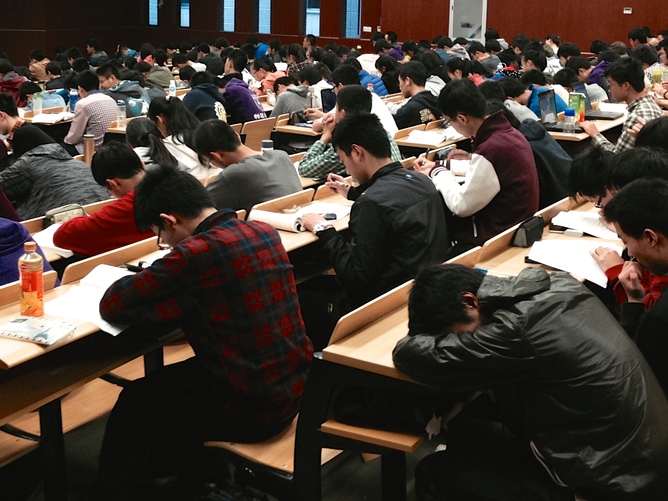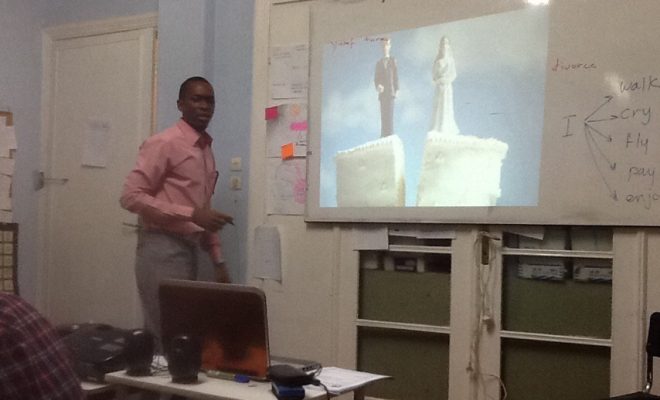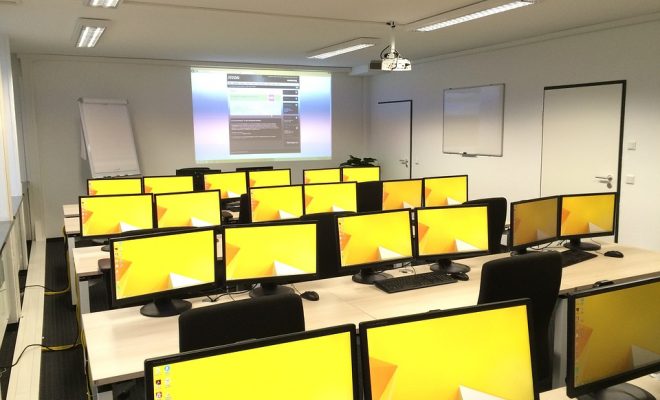How Did We Get Here? Part I: What is The State of Education Reform Today?

This is one of a multi-part series on the progression of education policies in the U.S. from its founding. Click here to see a list of all the posts in this series.
By Matthew Lynch
Think back on your earliest recollection of American history as it was taught to you in school. The Founding Fathers didn’t earn that moniker by following alongside all the other young men in their schools, colleges and career paths. On the contrary, these men had dreams that lived outside the Colonial box and they aimed to make them reality, no matter what the personal cost. This story form repeats itself throughout American history, too. Abraham Lincoln, Martin Luther King Jr., women’s suffrage leader Lucy Burns – they all took the road less traveled and broke out of the mold of their times to make a positive impact on the future and move the country forward.
Every country has its folk heroes, of course, and these figure heads serve as reminders that you should always, always stick by your belief systems even if they run contrary to everyone else’s. In America, though, everyone is entitled to follow in the footsteps of these leaders – these heroes that paved the way. In large and small ways, everyday Americans shape the future of the country just by tapping into their natural talents and personal stances. It’s why we have bifocals, and fire hydrants, and swivel chairs. Without American innovators, the world would have never been able to enjoy cupcakes, or graham crackers, or baseball. Had inventors like Henry Ford, Robert Fulton and Wilbur Wright walked the line and focused on the career paths and learning options their government deemed a priority, they may have never had the mind to attach an engine here, or a motor there, or a wing up there.
Innovation is what has always driven Americans, and continues to drive us all today. It’s what has simultaneously given us the labels of crazy and genius. Frankly, it’s what makes Americans a global force to be reckoned with. Without the many Americans who have stepped outside the lines to better their own ways of life and those of their fellow citizens, this nation would not be considered the greatest on the globe.
That innovation, that creative spirit, is born in our public schools. The students who will dream up the next generation’s major inventions, and come up with plans to improve the American way of life, and fill every job in between are in our K-12 classrooms today. Despite more choices than ever when it comes to the childhood learning years, public schools remain a steadfast reminder of all that is great, and inspirational, and smart about the American way.
As America has grown in its nearly 250 years of existence, its public school system has also adjusted with the times. Different theories on properly educating our next generations have been introduced, tested, established and thrown out. Each new evolution of the public school systems in the U.S. have built upon the lessons of the ones before – both good and bad – and have culminated to bring us to the current state of U.S. education today.
So what do our school systems look like, really? If you base your knowledge of the nation’s public schools on news headlines alone, you likely have a bleak perception of what exactly is happening in the K-12 classrooms funded by our tax dollars. A report issued from the U.S. Department of Education in April of 2014 showed that high school seniors did not show any signs of improvement in math and science scores from 2009 to 2013. When compared with other developed countries, U.S. students lag seriously behind in areas like math and science, too. The students who are bringing down the national averages are not just from underprivileged areas, either. Among students from households where at least one parent has a college degree, or the family is considered “affluent,” the U.S. ranks as number 27 on a list of 34 countries in math capabilities. A Washington Examiner report also finds that more than half of 15 year olds from homes with well-educated parents are not proficient in at least one of three areas: reading, math or science.
Despite these and numerous other reports that are similar, U.S. seniors are graduating at a record rate of 80 percent. It is a happy statistic, no doubt, and one that should be celebrated but it does leave some room for speculation: how are so many U.S. students lagging behind in so many vital academic areas, yet graduating from our schools at record rates?
The truth is complicated. Standards for exactly what students should be learning at every step of their educational journey have never been more stringent. The No Child Left Behind legislation enacted in 2001 heightened educator accountability systems and put more stringent assessment processes in place to measure the true learning outcomes of students. These requirements were not suggestions, but were (and are) tied to federal funding. So a school district doing exceptionally well based on the set-forth standards receives its federal funding while another that is struggling, and is arguably in greater need for the money, is left to flounder in its failures.
Teacher accountability was in place before NCLB, and so were state assessment tests, but the legislation thrust both on a pedestal that schools are still reeling to accommodate. By setting blanket benchmarks for the entire nation, based on limited tested materials, teachers were essentially stripped of their free will when it came to educating and were forced to begin “teaching to the test.” For many educators, NCLB was a marked end to learning for learning’s sake in classrooms, and even meant dumbing down materials to be sure all students scored well on those vital assessments.
Fast forward 12 years to the recent enactment of Common Core Standards in 44 states and the District of Columbia, and accountability and assessments have even more to contend with. Tied to President Obama’s federal funding program Race to the Top, Common Core benchmarks were determined by the National Governors Association. States could choose to opt in or out, with pressure to conform enhanced by the promise of good old fashioned American money. Like NCLB legislation (which still exists alongside Common Core requirements), the new set of initiatives seeks stronger student outcomes in areas like math, science and technology.
Which is a good thing, right? If our students are lagging in these areas then it makes sense to raise our standards when it comes to learning them, doesn’t it? In theory, Common Core Standards work. Place more focus on the subjects where American students need extra help, attach some money as an incentive and then watch the test scores rise. The true effectiveness of these standards remains to be seen, but it is hard to imagine that placing greater concentration on a narrow range of subjects, at the expense of others, will end up boding well for this generation of K-12 students.
Assessments and teacher accountability tied to funding are just the tip of the iceberg when it comes to the issues holding back the actual process of learning in our public schools. Issues of overcrowding, and inequality of resources, and a cultural shift towards anti-intellectualism weigh heavy on the schools within our borders.
By identifying the major problems that hinder the effectiveness of the public schools of our nation, we can start a journey that will lead us toward better outcomes for future generations. It is not a task that is reserved for educators alone. To really experience the changes needed to raise the quality of what we offer our children when it comes to their educations, it will take every parent, business owner and community member. Change won’t happen overnight but with concentrated efforts and societal support, it can be enacted. It’s important first though to understand the exact history of our public schools and what has taken place over the past two centuries to bring us to where we are today. The role that our public schools have played in shaping our modern society is a large one and the importance of its influence on our future should not be underestimated. To really create the type of society we desire as Americans, we must start with our public schools and understand how they are, and always have been, an integral piece of our future patchwork.






